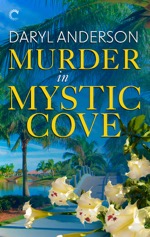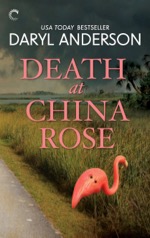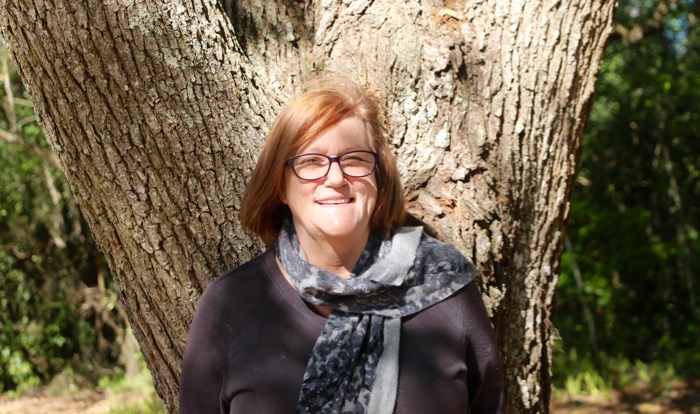Writing, like growing old, isn’t for wimps.
There’s always a new challenge, the next deadline, yet another hurdle to jump over. My most difficult challenge as a writer came early in my career.
I Lost Control of a World I’d Created, and I Wasn’t Laughing
It was an October morning, several years ago, and I was halfway through the writing of my first novel. I woke with the dread realization that the story wasn’t working. My writing was crap. The outline that I’d spent weeks developing was in tatters, and my characters—the ungrateful wretches!—were pursuing their own desires, not mine.
Incredibly, I had lost control of a world of my own creation, which was pretty funny—only I wasn’t laughing.
A Few Months Into the Writing Life, I Was Ready to Throw In the Towel
Some months earlier, I’d quit my nursing job, burned to a crisp by long hours and grim working conditions. I’d planned to find another nursing position, but my husband suggested that I give writing a shot.
Writing was something I’d always wanted to do, and I knew something of literature—before returning to school for my RN, I’d taught English for many mostly happy years. So I accepted, with alacrity, as they say in the old novels.
But just a few months into the writing life, I was ready to throw in the towel. The manuscript was such a mess, I considered abandoning the novel for a new project. But behind this thought was a more troubling doubt—maybe I wasn’t cut out to be a writer.
When I Wrote the Last Sentence of My Novel, I Was a Writer
I was no idealistic kid. I knew that not all dreams come true, nor should they. As a tomboy growing up in Baltimore, I dreamed of playing baseball for the Orioles, which never happened either—mostly because I’m female and can’t hit a baseball to save my life.
And I had other options. I could go back to nursing or teaching. Quitting would be so easy, and I had no trouble admitting defeat, except for that pesky desire that wouldn’t go away.
I wanted to write.
So I took a deep breath and got back to the job at hand. It took a lot of work, and I read every book about writing that I could find, but I finished my manuscript, and while it was never published, when I wrote the last sentence, I was a writer.
And there was no going back.
Being Published Brought a Whole New Set of Stressors
Shortly after completing that first manuscript, I started writing the mystery novel that would become Murder in Mystic Cove, my first published book. The day I got the acceptance call from Carina Press was one of my most exciting days as a writer, although it didn’t quite match the profound satisfaction I’d felt when I finished that first book.
Being published brought a whole new set of stressors, including the need for promotion, about which I knew nothing. I turned to books and other writers for advice. And the physical stressors of sitting in a chair are daunting. My lifeline is yoga and kettlebells. Funny, I never thought I’d become the sort of woman who loved her kettlebells.
Advice for a Young Writer: Realize You’re Going to Write a Lot of Crap
But despite the difficulties, if a young person asked me about becoming a writer, I’d tell her to go for it. Just remember that if you want to write, read—a lot. And write something every day, with the understanding that you’re going to write a lot of crap, which is okay. Writing crap is how you learn to tell the difference between what’s crap and what’s not crap.
Ray Bradbury compared writers to cups that are constantly being filled and that writing is simply the process of tipping the cups in just the right way so that the beautiful stuff comes out. I like to think of writing as a sort of alchemy in which the mess and matter of life is transmuted into language, a skill that must be practiced daily.
For example, when I first saw Michelangelo’s David, I remember thinking that this is what courage looks like. It’s there in the slightly insolent pose, David’s steady and calculating eye, and finally in the firm set of his mouth. Michelangelo communicated this living truth in cold marble. I have to do it with mere words.

With Each Novel There’s a Moment I Doubt My Ability to Finish It
Though I came to writing late in life, better late than never, though I wish I could say my doubts about my writing are in the past.
With each novel I’ve written, there’s always a moment when I doubt my ability to finish the story, which is when I remind myself that I’ve been down this odiferous creek many times before and so far have always managed to find a paddle.
So I plan to keep on paddling, for as long as I have the desire and strength to write.

* * *
Daryl Anderson is a USA Today best-selling writer, and author of several mystery novels set in the wilds of north Florida, including Murder in Mystic Cove, Death at China Rose, and Murder Comes to Elysium.
After successful careers in teaching and nursing, Daryl turned to writing. As a lifelong devotee of Christie, Poe, and Chandler, she naturally gravitated to mystery writing. She lives in Gainesville with her husband and two spoiled dogs, Sally and Pitch. When not plotting her latest homicide, she enjoys gardening, vegetarian cooking, and travel.
For more information on Daryl and her work, please see her website, or connect with her on Facebook and Twitter.
 Murder in Mystic Cove: Guarding the manicured wilds of an exclusive retirement community might seem like exile to a former homicide cop. But Addie Gorsky moved to Florida to live with her ailing father, not to chase criminals. In fact, her new job as head of Mystic Cove security is a nice break from all the big-city bloodshed.
Murder in Mystic Cove: Guarding the manicured wilds of an exclusive retirement community might seem like exile to a former homicide cop. But Addie Gorsky moved to Florida to live with her ailing father, not to chase criminals. In fact, her new job as head of Mystic Cove security is a nice break from all the big-city bloodshed.
But when the community’s most despised resident is found dead in his tricked-out golf cart, Addie’s ready for action. The local cops focus on the obvious suspect—the unhappy wife—but Addie knows there’s more to the story. When the sheriff asks for assistance, she can’t resist. Only the deeper she digs, the more questions she turns up.
Surrounded by secretive, tight-lipped residents, Addie soon finds herself hip-deep in a mystery as tangled as cypress roots—and directly in the sights of a cool, clever killer who has no compunction about killing again…
 Death at China Rose: When Harry Pitts turns up dead at China Rose Fish Camp, the bloody scene suggests a frenzied, random act of violence. But Harry’s blood was not the first to be shed at China Rose, and Addie suspects that the crime is connected to China Rose’s haunted past and the disappearance of Harry’s daughter eleven years ago.
Death at China Rose: When Harry Pitts turns up dead at China Rose Fish Camp, the bloody scene suggests a frenzied, random act of violence. But Harry’s blood was not the first to be shed at China Rose, and Addie suspects that the crime is connected to China Rose’s haunted past and the disappearance of Harry’s daughter eleven years ago.
Addie finds herself hip deep in a mystery that goes all the way back to the days of old Florida, to the time of wily pirates and proud conquistadors, and the trove of treasure that legend claims is still buried in the backwaters of China Rose.
As Addie contends with grinning gators, killer bees and gaping cottonmouths, she soon learns that these predators pale in comparison to the cunning two-legged killer Addie is hunting…and who soon begins hunting her.
 Murder Comes to Elysium: Private Investigator Addie Gorsky is still struggling with her father’s death when her good friend Moss asks her to look into the sudden death of his niece, Elena. The young woman died minutes after being discharged from Tender Mercies Psychiatric, one of the darker places in the Sunshine State.
Murder Comes to Elysium: Private Investigator Addie Gorsky is still struggling with her father’s death when her good friend Moss asks her to look into the sudden death of his niece, Elena. The young woman died minutes after being discharged from Tender Mercies Psychiatric, one of the darker places in the Sunshine State.
When a second person dies at the Mercies, Addie discovers a connection between the two deaths and one of the heinous crimes in Florida’s history. Suddenly Addie finds herself in a deadly chess match with an unseen opponent, a grand master of murder who is always one step ahead. Somehow, she must find a way to defeat this ruthless killer before another life is lost.

